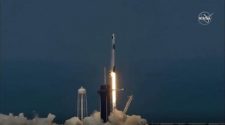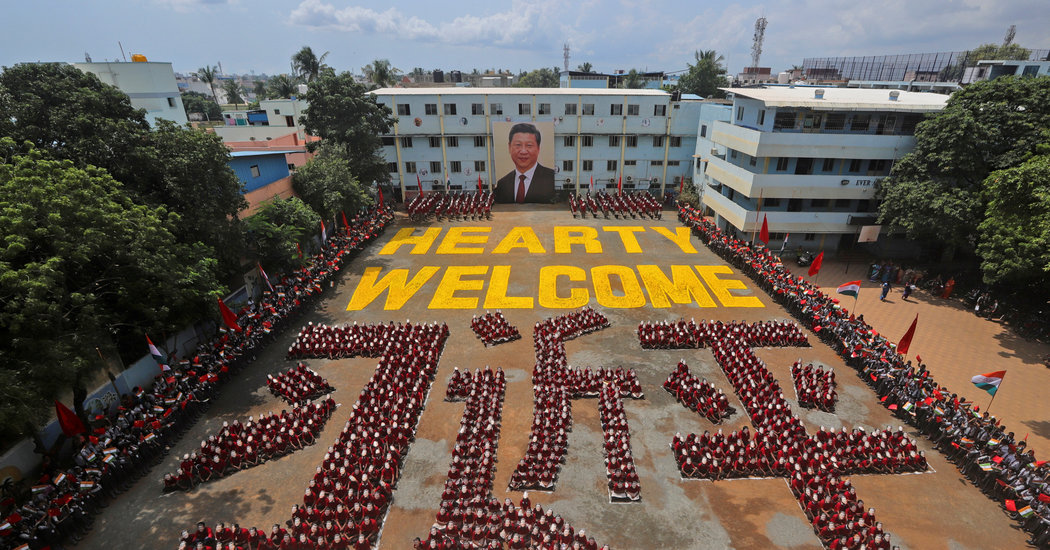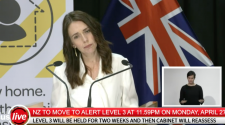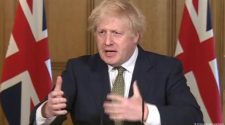NEW DELHI — China’s leader, Xi Jinping, is swooping in to India on Friday for a quick meeting with Prime Minister Narendra Modi. “Frenemies,’’ is how a senior Indian official has described the India-China relationship.
The two giant countries are neighbors and strategic rivals. They’re nuclear-armed, and their relationship is as complicated as ever. Mr. Xi and Mr. Modi are the most dominating leaders their nations have produced in decades, and both have outsize personalties. But with each other, they have no choice but to listen.
China wants to keep India from drifting closer to the United States, where Mr. Modi recently received a warm welcome from President Trump. India wants China to rebalance trade flows by buying more Indian good and services and to back away from the border disputes that have dogged their countries for years. A good relationship would help both countries in their aspirations to be world powers.
But it has been up and down for years. The two nations fought a short but intense war in the 1960s (China won) and have supported insurgencies in each other’s backyards and sparred over trade deficits (China is winning that one as well).
This summit meeting almost did not happen. Mr. Xi kept Mr. Modi hanging until the last minute, confirming just a few days ago that he was actually coming to India. Apparently, China was upset with India about some recent military exercises near the border.
It is scheduled to be a fast trip. Mr. Xi will be on the ground for about 24 hours, landing in the southern city of Chennai around 2 p.m., visiting some Hindu monuments, attending a fancy dinner and then having an hourlong one-on-one chat with Mr. Modi on Saturday morning.
They have no shortage of issues to untangle. Here are a few.
Kashmir
In August, Mr. Modi’s government essentially annexed Kashmir, a disputed Himalayan territory that has long been a source of conflict between India and Pakistan. But this also created “bad blood” with China, said Brahma Chellaney, a professor of strategic studies at the Center for Policy Research in New Delhi.
Part of the reason is that China also claims a piece of Kashmir: a high altitude plateau called Aksai Chin. Mr. Modi’s decision to strip away the statehood of Jammu and Kashmir and split the territory into two new federally controlled enclaves was seen as a hardening of India’s position and a possible threat to China’s claims. Much of the India-China border is disputed, which is likely to come up during this meeting.
China’s ally, Pakistan, is India’s most bitter rival, and Pakistani officials, including Prime Minister Imran Khan, have made a huge stink about Kashmir. Pakistan also claims parts of Kashmir and has accused Mr. Modi of genocide.
Mr. Modi is likely to reassure Mr. Xi that India does not plan to change the international borders and that Kashmir is purely an internal issue.
Kashmir is such a sensitive issue in India and Pakistan that it would be nearly impossible for Mr. Xi to say anything publicly on it without angering one of them.
Pakistan
This is probably going to be a whole separate discussion. India has been on an intense lobbying campaign to discredit Pakistan, accusing Pakistan of secretly supporting terrorists. In the next few days, a financial task force based in Paris will be holding a meeting to review Pakistan’s behavior. India wants China to join the effort to blacklist Pakistan, which could bring Pakistan’s economy to its knees.
But Mr. Xi’s government has invested billions of dollars in Pakistan and is rapidly turning the country into a Chinese client state — selling Pakistan Chinese weaponry and letting Pakistan in on secret Chinese technology. Despite the fact that China is persecuting Uighur Muslims in its western Xinjiang region and forcing them into camps, Pakistani officials rely on China too heavily for much outcry on that issue.
Just last week, a Chinese official said China would help Kashmiris “get their fundamental rights and justice’’ and that “China will stand by Pakistan.’’ That infuriated the Indians.
Trade Imbalance
Chinese phones. Chinese screws. Chinese plastic toys. China exports much more to India than India does to China. The trade deficit has ballooned to nearly $60 billion in China’s favor.
Just 10 years ago, many people spoke of China’s and India’s economic growth in the same breath. Not any more. China’s economy is now five times bigger. While China has become the world’s manufacturer, India is still largely agrarian.
Mr. Modi is likely to ask Mr. Xi to let in more Indian pharmaceuticals and ease some of the trade barriers, but Chinese analysts do not anticipate big changes.
“India has worked very hard on the trade imbalance for a long time but with no substantial improvement,’’ said Lu Yang, a South Asia scholar at Beijing’s Tsinghua University.
If the economic gap widens, “India might end up as China’s Mexico, a cheap-labor reservoir rather than an equal power,’’ said Jonathan Holslag, professor of international politics at the Free University in Brussels.
Themselves
A little boss bonding is built into the program.
Mr. Modi plans to bring Mr. Xi to some monuments in Mamallapuram, an old seaside town near Chennai. There’s also a private dinner and a “cultural program,’’ according to the Indian news media.
Last year, in Wuhan, China, during a similar summit meeting, the two leaders tried their best not to look wooden as they strolled around a lake and posed for pictures. It didn’t seem to work.
“One does not notice any special chemistry between them,’’ said Alka Acharya, a professor at Jawaharlal Nehru University in New Delhi.
Still, she said, they are trying and a “reasonable rapport has been established.’’
Sameer Yasir contributed reporting from New Delhi.


















